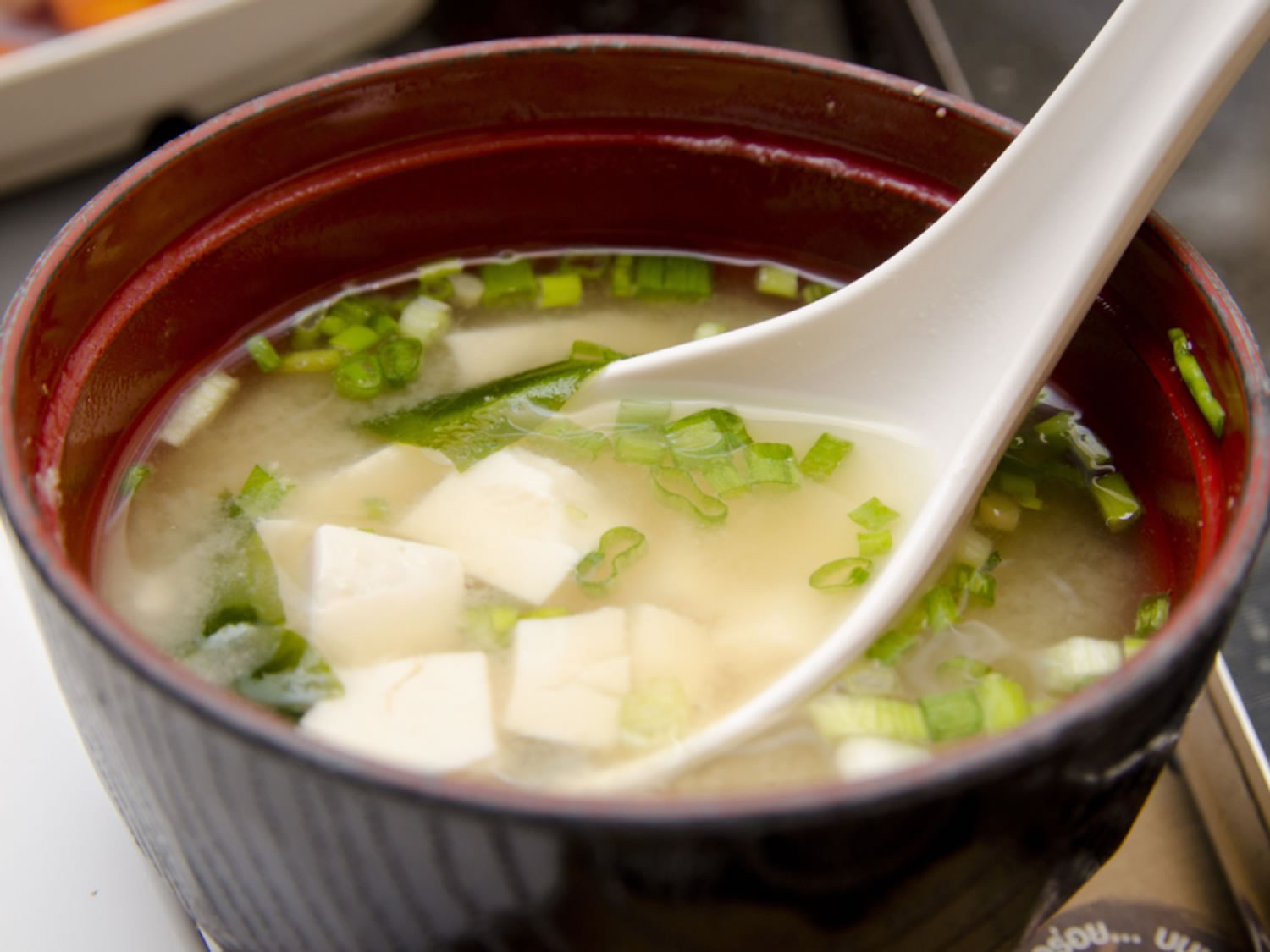
Miso soup is a traditional Japanese dish that has gained popularity around the world for its delicious taste and numerous health benefits. Made from fermented soybeans and other ingredients like seaweed, mushrooms, and tofu, miso soup is not only a comforting and flavorful dish but also a powerhouse of nutrition.
In this article, we will explore 10 fascinating nutrition facts about miso soup that will make you appreciate it even more. From its rich source of protein and essential amino acids to its high content of vitamins, minerals, and antioxidants, miso soup is a fantastic addition to any diet. So, let’s dive right in and discover the amazing health benefits that a warm bowl of miso soup can offer!
Key Takeaways:
- Miso soup is a low-calorie, high-protein dish rich in vitamins and minerals, making it a healthy addition to any diet. However, it’s important to watch the sodium content and enjoy it in moderation.
- The fermentation process in miso soup provides digestive benefits and boosts the immune system. Its versatility and flavorful nature make it a delicious and nutritious choice for a balanced diet.
Nutrition Low in Calories
**
Miso soup is a delicious and nutritious dish that is also low in calories. With approximately 35 calories per serving, it is a great option for those watching their calorie intake while still enjoying a flavorful meal.
**
Nutrition High in Protein
**
Miso soup is packed with protein, which is essential for maintaining and repairing tissues in the body. With around 3 grams of protein per serving, it can be a valuable addition to a vegetarian or vegan diet.
**
Nutrition Rich in Vitamins and Minerals
**
Miso soup contains an array of vitamins and minerals, including vitamin K, manganese, and copper. These nutrients play a vital role in supporting various bodily functions such as bone health, energy production, and immune system function.
**
Nutrition Fermented Goodness
**
Miso soup is made from fermented soybeans, which provides numerous health benefits. The fermentation process enhances the bioavailability of nutrients and promotes gut health by introducing beneficial bacteria to the digestive system.
**
Nutrition Low in Fat
**
Miso soup is naturally low in fat, making it a healthy choice for those looking to maintain a balanced diet. It contains less than 1 gram of fat per serving, making it a suitable option for individuals watching their fat intake.
**
Nutrition Source of Antioxidants
**
Miso soup contains antioxidants, such as phenolic compounds, which help fight free radicals in the body. These antioxidants have been linked to a reduced risk of chronic diseases, including heart disease and certain types of cancer.
**
Nutrition Sodium Content
**
Due to its high sodium content, it is important to consume miso soup in moderation. While it can contribute to your daily sodium intake, opting for low-sodium varieties or controlling portion sizes can help mitigate any potential negative effects.
**
Nutrition Boosts Immune System
**
Miso soup contains compounds that can help boost the immune system. It has been used in traditional medicine for its potential antiviral, antimicrobial, and anti-inflammatory properties.
**
Nutrition Provides Digestive Benefits
**
The fermentation process involved in making miso soup produces enzymes that aid digestion. These enzymes help break down food and improve nutrient absorption, leading to better digestive health.
**
Nutrition Versatile and Flavorful
**
Miso soup is not only nutritious but also versatile and flavorful. It can be easily customized with various ingredients like tofu, seaweed, mushrooms, and vegetables, allowing you to tailor it to your taste preferences.
Overall, the 10 Nutrition Facts Miso Soup showcases its nutritional value, from being low in calories to high in protein, vitamins, and minerals. Incorporating miso soup into your diet can provide numerous health benefits, including improved gut health, boosted immune system, and a source of antioxidants. However, it’s important to be mindful of its sodium content and consume it in moderation. Enjoy the versatile and flavorful benefits of miso soup as part of a balanced and nutritious diet!
Conclusion
In conclusion, miso soup is not only a delicious and comforting dish, but it also offers numerous health benefits. From boosting the immune system to improving digestion, this traditional Japanese soup is a powerhouse of nutrition. It is low in calories and fat, but rich in essential vitamins, minerals, and antioxidants. Miso soup is also a great source of protein, making it a perfect option for vegetarians and vegans. Additionally, the probiotics found in miso promote a healthy gut and aid in weight management. With its umami flavor and nutritional value, miso soup is a versatile and satisfying addition to any meal. So, why not start incorporating this nutritious soup into your diet and reap its many benefits?
FAQs
1. Is miso soup high in sodium?
Miso soup does contain some sodium, but the amount can vary depending on the recipe and the type of miso used. To reduce the sodium content, you can opt for a low-sodium miso paste and control the amount of added salt.
2. Is miso soup vegan-friendly?
Yes, miso soup can be vegan-friendly as the base ingredients are typically soybeans, koji (a type of fungus), and salt. However, it’s important to check the ingredients list of commercial miso paste as some may contain bonito flakes, which are derived from fish.
3. Can miso soup help with weight loss?
Miso soup can be a beneficial addition to a weight loss diet. It is low in calories and fat while providing a good amount of protein and nutrients. However, it’s important to choose a well-balanced diet and incorporate other healthy foods and exercise for effective weight loss.
4. Can miso soup be made gluten-free?
Yes, miso soup can be made gluten-free by using gluten-free miso paste and opting for gluten-free ingredients such as vegetables and tofu. It’s necessary to double-check the labels of miso paste and other ingredients to ensure they are gluten-free.
Was this page helpful?
Our commitment to delivering trustworthy and engaging content is at the heart of what we do. Each fact on our site is contributed by real users like you, bringing a wealth of diverse insights and information. To ensure the highest standards of accuracy and reliability, our dedicated editors meticulously review each submission. This process guarantees that the facts we share are not only fascinating but also credible. Trust in our commitment to quality and authenticity as you explore and learn with us.


